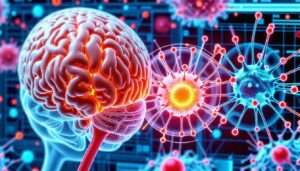Did you know that artificial intelligence (AI) has the potential to greatly impact the field of mental health? As technology continues to advance, AI is being increasingly utilized in the assessment, diagnosis, and treatment of mental health conditions. In this post, we will explore the opportunities and limitations of AI in the context of mental healthcare. By the end, you will have a better understanding of the potential benefits and risks associated with the integration of AI into mental health services. For a deeper dive into this topic, you can read the full article on Exploring the Role of Artificial Intelligence in Mental …
Key Takeaways:
- AI can significantly improve mental health care: AI can be used to analyze large sets of data, identify patterns, and provide personalized treatment recommendations leading to improved mental health care outcomes for patients.
- Privacy concerns are a major limitation: The use of AI in mental health care raises significant privacy concerns as it requires the collection and analysis of sensitive personal data, requiring careful consideration and implementation of privacy protocols.
- AI should not replace human therapists: While AI can enhance mental health care, it should not replace human therapists as the human touch, empathy, and emotional connection are vital to effective therapy.
- AI-based mental health tools should be accessible: Efforts should be made to ensure that AI-based mental health tools are accessible and affordable to all individuals, regardless of their socioeconomic status, to ensure equitable mental health care.
- Ethical considerations are crucial: As AI becomes more prevalent in mental health care, it is essential to address ethical considerations such as bias, transparency, and accountability to ensure that AI is used responsibly and ethically in the treatment of mental illness.
AI Applications in Mental Health
If you are curious about the role that Artificial Intelligence (AI) could play in mental healthcare, you may be interested in exploring its potential applications. AI has the capability to transform mental health treatment and care in a variety of ways. To understand the opportunities and limitations of AI in mental health, it is essential to explore the various areas where AI can be applied in this field. What Role Could Artificial Intelligence Play in Mental …
Early Detection and Diagnosis
Early detection and diagnosis of mental health conditions are crucial for effective intervention and treatment. AI has the potential to analyze a wide range of data, including genetic information, electronic health records, and behavioral patterns, to identify patterns and indicators of mental health disorders. This can lead to earlier identification of at-risk individuals and earlier intervention, ultimately improving patient outcomes.
Personalized Treatment Plans
AI can be used to develop personalized treatment plans for individuals with mental health conditions. By analyzing an individual’s unique biological, psychological, and social factors, AI can help mental health professionals tailor treatment plans to meet the specific needs of each patient, leading to more effective and targeted interventions.
AI-driven Therapeutic Tools
AI-driven therapeutic tools, such as chatbots and virtual reality-based interventions, have the potential to provide accessible and responsive support to individuals experiencing mental health challenges. These tools can offer personalized coping strategies, crisis support, and real-time interventions, enhancing the accessibility and effectiveness of mental health care.
Monitoring and Predictive Analytics
AI can facilitate continuous monitoring and predictive analytics to track the progress of individuals undergoing mental health treatment. By analyzing data from wearable devices, social media, and electronic health records, AI can provide insights into an individual’s mental health status, identify potential triggers, and predict the risk of relapse, enabling proactive interventions and personalized support.
Opportunities Offered by AI
Despite the potential limitations and ethical concerns surrounding the use of AI in mental health, there are significant opportunities that it offers in improving the overall well-being of individuals. Here are some of the key opportunities that AI presents in the field of mental health.
Enhancing Accessibility and Reducing Stigma
AI technology has the potential to enhance the accessibility of mental health services by providing 24/7 support through various digital platforms. This can be particularly beneficial for individuals who may not have access to traditional mental health services due to geographical, financial, or social barriers. Additionally, utilizing AI can help reduce the stigma associated with seeking mental health support, as it provides a level of anonymity and privacy for individuals who may be hesitant to seek help in person.
Improving Clinical Decision Making
AI has the capability to analyze vast amounts of data and identify patterns that may not be immediately evident to human clinicians. This can lead to more accurate diagnosis and treatment recommendations, ultimately improving the quality of care provided to individuals. By leveraging AI, clinicians can make more informed decisions based on evidence-based insights, ultimately leading to better outcomes for their patients.
Supplementing Human Therapists
While AI is not intended to replace human therapists, it can supplement their work by providing personalized interventions and support to individuals in-between therapy sessions. AI-powered chatbots and virtual assistants can offer continuous support and monitoring, providing individuals with coping strategies, psychoeducation, and reminders for self-care activities. This can help individuals feel supported and engaged in their mental health journey, even outside of traditional therapy settings.
In summary, AI offers numerous opportunities in the field of mental health, including enhancing accessibility and reducing stigma, improving clinical decision making, and supplementing the work of human therapists. While it is important to approach the implementation of AI in mental health with caution and ethical considerations, it is clear that this technology has the potential to positively impact the well-being of individuals and communities. Nevertheless, it is important to remain vigilant about the potential limitations and ethical concerns associated with these technologies.
Limitations and Challenges
After discussing the opportunities presented by AI in mental health, it is crucial to acknowledge the limitations and challenges associated with its use. While AI has the potential to significantly improve mental health care, it also comes with a set of limitations that need to be carefully considered.
Ethical Considerations and Privacy Concerns
When utilizing AI in mental health, ethical considerations and privacy concerns become major factors to take into account. AI technology has the potential to gather and store sensitive personal data, raising concerns about privacy and confidentiality. The ethical implications of using AI to analyze and interpret individual’s mental health data are complex, as it may impact autonomy, consent, and the potential for discrimination based on mental health status. It is essential to establish clear guidelines and regulations to address these concerns and ensure that individuals’ privacy and rights are protected.
AI Bias and Reliability Issues
Another significant limitation of AI in mental health is the potential for bias and reliability issues. AI algorithms may reflect the biases of the data they are trained on, leading to inaccurate or unreliable outcomes, particularly in the context of mental health diagnosis and treatment. It is important to continuously evaluate and address bias in AI systems, as well as to ensure that they are reliable and accurate in their assessments and recommendations.
Potential Impact on Therapeutic Relationships
One of the most significant challenges posed by the integration of AI in mental health care is the potential impact on therapeutic relationships between individuals and their mental health professionals. While AI has the potential to enhance and streamline aspects of mental health care, it may also affect the human connection and empathy that is crucial in therapeutic relationships. The introduction of AI tools may shift the dynamics of the therapeutic process, requiring careful consideration of how to maintain the human element in mental health care.
Future of AI in Mental Health
Keep an eye on the potential for AI to revolutionize the field of mental health in the future. As technology advances, the capabilities of AI continue to grow, and this opens up new opportunities for supporting individuals with mental health challenges.
Advancements in Technology
Advancements in technology are paving the way for AI to play a significant role in mental health care. From sophisticated algorithms that can analyze large volumes of data to the development of wearable devices that can track and monitor mental health indicators, the potential for AI to enhance diagnosis, treatment, and support for individuals with mental health issues is immense. While the use of AI in mental health is still in its early stages, the rapid pace of technological development suggests that we can expect significant advancements in the near future.
Integrating AI with Traditional Therapies
Integrating AI with traditional therapies has the potential to improve the efficacy and accessibility of mental health care. By combining the insights and expertise of human therapists with the capabilities of AI, personalized treatment plans can be developed that take into account an individual’s unique needs and circumstances. This integration has the potential to expand the reach of mental health services, making them more accessible to those who may not have had access to traditional therapy in the past.
Policy and Regulation Needs
As AI continues to make inroads in the field of mental health, it is crucial to consider the policy and regulation needs to ensure its safe and ethical use. The collection and storage of sensitive mental health data, the potential for algorithmic bias, and the need for clear guidelines on the use of AI in mental health care are all important considerations. It is essential to establish robust policies and regulations to protect the privacy and well-being of individuals seeking mental health support while harnessing the potential benefits of AI.
Conclusion
Drawing together the opportunities and limitations of AI in mental health, it is clear that there is enormous potential for this technology to revolutionize the way we diagnose, treat, and support individuals with mental health issues. AI has the capability to analyze vast amounts of data and provide personalized, timely interventions that could greatly improve outcomes. However, it is important to recognize the limitations of AI, such as the potential for privacy breaches and the inability to fully replicate the human connection that is crucial for mental health care. As you consider the integration of AI in mental health, it is crucial to approach this technology with caution, ensuring that it is used in a way that complements and enhances the human touch, rather than replacing it entirely.
FAQ
Q: What is the role of AI in mental health?
A: AI plays a crucial role in mental health by facilitating early detection, personalized interventions, and continuous monitoring of mental health conditions.
Q: Can AI replace human therapists and psychiatrists?
A: While AI can support mental health professionals by providing data-driven insights, it cannot replace the human connection and empathy that are essential in therapy and psychiatry.
Q: What are the limitations of AI in mental health?
A: Limitations of AI in mental health include the potential for algorithmic bias, privacy concerns, and the inability to fully understand complex human emotions.
Q: How does AI contribute to suicide prevention?
A: AI contributes to suicide prevention by analyzing patterns in behavior and language to identify individuals at risk, enabling targeted interventions and support.
Q: What are the ethical considerations surrounding AI in mental health?
A: Ethical considerations in AI and mental health encompass issues of privacy, consent, transparency, and ensuring that AI technologies are used in ways that prioritize the well-being of individuals.
Remember to adapt the questions and answers based on the target audience and the specific focus of the FAQ.




